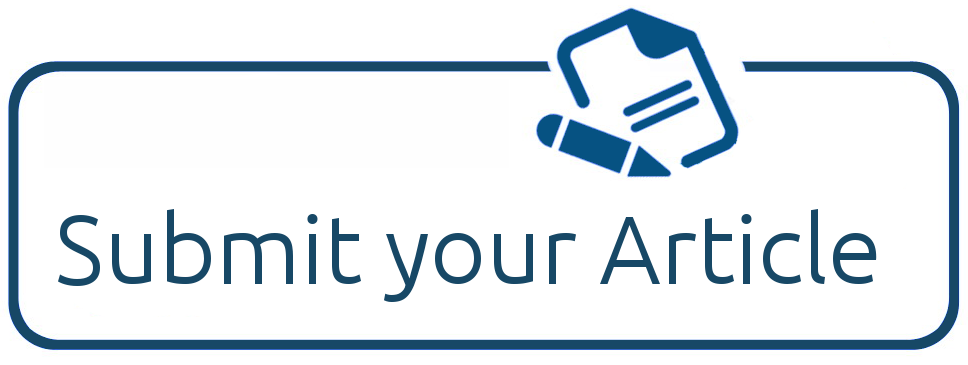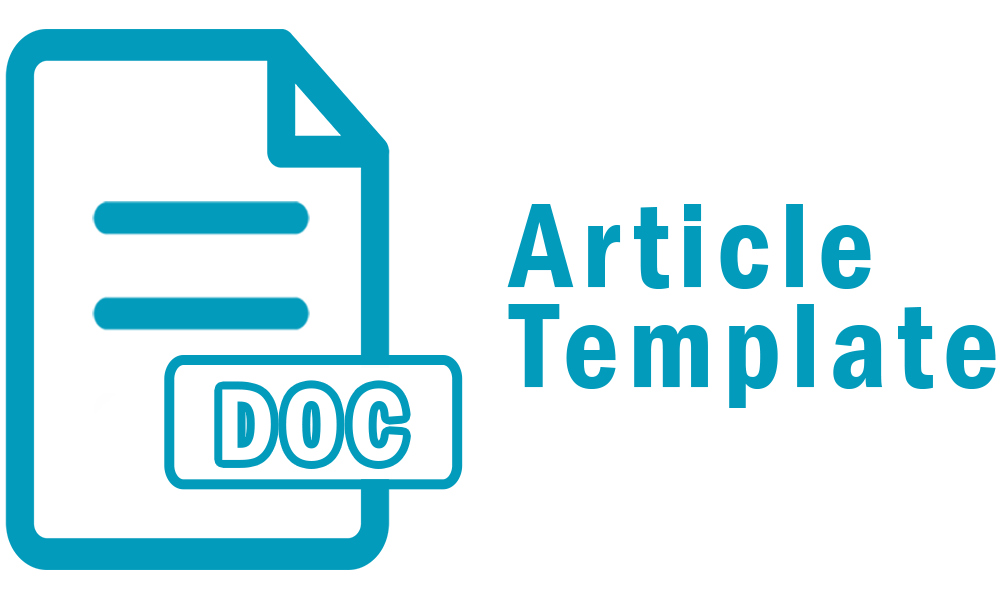Critical Success Factors in Scrum Software Development: A Comprehensive Literature Review
DOI:
https://doi.org/10.58963/qausrj.v28i28.306Keywords:
Scrum Success Drivers , Agile Performance Metrics , Team Empowerment Factors , Stakeholder Engagement , Process ImprovementAbstract
This paper presents a comprehensive literature review on the Critical Success Factors (CSFs) influencing the successful implementation of Scrum in software development projects. Scrum, as a widely adopted agile methodology, enhances flexibility, collaboration, and iterative delivery of software solutions. However, its effectiveness depends on multiple factors across various dimensions, including organizational, people, process, technical, and project factors.
This review synthesizes existing research to categorize and analyze these factors, providing valuable insights for researchers and practitioners. Key findings highlight the crucial role of management commitment, team dynamics, customer involvement, agile software techniques, and adaptable project management processes in achieving successful Scrum outcomes. The study also identifies challenges such as scope creep and stakeholder misalignment.
The study recommends enhancing management support, fostering cohesive teams, improving customer communication, and effectively utilizing agile software techniques to ensure successful Scrum projects. Furthermore, it calls for further research to explore how these factors interact in different organizational contexts, contributing to a deeper understanding of Scrum adoption and its impact on software development success.
Downloads
References
Abadir, Sameh, Batsa, Eric, Neubert, Michael, & Halkias, Daphne. (2019). Leading multicultural teams in agile organizations. Available at SSRN 3507635.
Adeniyi, Idowu Sulaimon, Al Hamad, Nancy Mohd, Adewusi, Ololade Elizabeth, Unachukwu, Chika Chioma, Osawaru, Blessing, Onyebuchi, Chisom Nneamaka,
David, Isiah Oden. (2024). Organizational culture and leadership development: A human resources review of trends and best practices.
Ahmed, Pervaiz K, Loh, Ann YE, & Zairi, Mohamed. (1999). Cultures for continuous improvement and learning. Total Quality Management, 10(4-5), 426-434.
Aizaz, Farwah, Khan, Saif Ur Rehman, Khan, Junaid Ali, & Akhunzada, Adnan. (2021). An empirical investigation of factors causing scope creep in agile global software development context: a conceptual model for project managers. IEEE Access, 9, 109166-109195.
Al-Ashmoery, Yahya, Nasser, Najran, Chaabi, Youness, Haider, Hisham, Haider, Adnan, & Alwesabi, Khaled. (2023). A systematic study on Traditional software development models and Agile Software Development Methodologies. Alrazi University Journal of Computer Science and Technology, 1(1), 1-13.
Alami, Adam, Zahedi, Mansooreh, & Krancher, Oliver. (2023). How does psychological safety influence agile teams’ pursuit of achieving software quality?
Ali, Muneeb, Hafeez, Yasir, & Hamid, Bushra. (2016). An Empirical Study and a Framework for Effective Risk Management in Scrum: Effective Risk Management in Scrum. Proceedings of the Pakistan Academy of Sciences: A. Physical and Computational Sciences, 53(4), 417-429.
Almeida, Fernando, & Espinheira, Eduardo. (2022). Adoption of large-scale scrum practices through the use of management 3.0. Paper presented at the Informatics.
Alqudah, Mashal Kasem, Razali, Rozilawati, Alqudah, Musab Kasim, Al Dalaien, Muawya N, Alabool, Hamzeh Mohammad, & Alkhazaleh, Hamzah Ali. (2024). A grounded theory of selecting lean and agile practices for software development. Journal of Software: Evolution and Process, 36(4), e2539.
ALSHURIDEH, MUHAMMAD, Akour, Iman A, Al Kurdi, Barween, & Hamadneh, Samer. (2024). Exploring the Impact of Scrum Framework on Project Effectiveness: A Quantitative Analysis of Agile Implementation Challenges and Benefits. International Journal of Theory of Organization and Practice (IJTOP), 4(2), 161-174.
Ames Zegarra, Carolina, & Sabanovic, Saban. (2022). Cross-functional team in a project with an agile management: Effective strategies and common challenges in a cross-functional team while using agile project management.
Arif, M. (2024). Agile Management: Adapting to Change in Dynamic Markets. Governance Accounting Archive Review, 1(4), 145-161.
Balasubramaniyam, Akila. (2024). Role of Product Owners in incremental adoption of new IT operating model.
Brose, Whillian Duarte, Cabral, Patrícia Martins Fagundes, Junior, José Carlos da Silva Freitas, & de David, Cíntia. (2023). Scrum team self-organization: an understanding in the light of the systemic-complex paradigm. International Journal of Scientific Management and Tourism, 9(6), 3594-3619.
Coleman, Dawn Marie, Dossett, Lesly A, & Dimick, Justin B. (2021). Building high performing teams: opportunities and challenges of inclusive recruitment practices. Journal of Vascular Surgery, 74(2), 86S-92S.
Deci, Edward L, & Ryan, Richard M. (2012). Self-determination theory. Handbook of theories of social psychology, 1(20), 416-436.
Doan, Thuy Thanh Thi, Nguyen, Linh Cam Tran, & Nguyen, Thanh Dan Ngoc. (2020). Emotional intelligence and project success: The roles of transformational leadership and organizational commitment. The Journal of Asian Finance, Economics and Business, 7(3), 223-233.
Dvir, Dov, Raz, Tzvi, & Shenhar, Aaron J. (2003). An empirical analysis of the relationship between project planning and project success. International journal of project management, 21(2), 89-95.
Dwi Harfianto, Hendy, Raharjo, Teguh, Hardian, Bob, & Wahbi, Andi. (2022). Agile transformation challenges and solutions in bureaucratic government: a systematic literature review. Paper presented at the Proceedings of the 2022 5th International Conference on Computers in Management and Business.
Elenurm, Tiit, & Fabritius, Johan. (2023). Managing task and relationship conflicts in international online team learning. Innovations in Education and Teaching International, 60(3), 426-435.
Ewim, CP, Achumie, Godwin Ozoemenam, Adeleke, Adams Gbolahan, Okeke, Ifeanyi Chukwunonso, & Mokogwu, Chukwunweike. (2024). Developing a cross-functional team coordination framework: A model for optimizing business operations. International Journal of Frontline Research in Multidisciplinary Studies, 4(01), 15-34.
Gmach, Daniel, Rolia, Jerry, Cherkasova, Ludmila, & Kemper, Alfons. (2009). Resource pool management: Reactive versus proactive or let’s be friends. Computer Networks, 53(17), 2905-2922.
Goins, Parker. (2024). Understanding the Transparency Construct of the Project Management Scrum Framework in Continuous Improvement Projects in the Manufacturing Industry. Capella University.
Haseli, Gholamreza, Ranjbarzadeh, Ramin, Hajiaghaei-Keshteli, Mostafa, Ghoushchi, Saeid Jafarzadeh, Hasani, Aliakbar, Deveci, Muhammet, & Ding, Weiping. (2023). HECON: Weight assessment of the product loyalty criteria considering the customer decision's halo effect using the convolutional neural networks. Information Sciences, 623, 184-205.
Hoda, Rashina, Noble, James, & Marshall, Stuart. (2010). Organizing self-organizing teams. Paper presented at the Proceedings of the 32nd ACM/IEEE International Conference on Software Engineering-Volume 1.
Holzmann, Vered, & Panizel, Ilanit. (2013). Communications management in Scrum projects. Paper presented at the International Conference on Information Management and Evaluation.
Hron, Michal, & Obwegeser, Nikolaus. (2022). Why and how is Scrum being adapted in practice: A systematic review. Journal of Systems and Software, 183, 111110.
Jain, Anshu K, Fennell, Mary L, Chagpar, Anees B, Connolly, Hannah K, & Nembhard, Ingrid M. (2016). Moving toward improved teamwork in cancer care: the role of psychological safety in team communication. Journal of oncology practice, 12(11), 1000-1011.
Jeleel-Ojuade, Aishat. (2024). The Role of Information Silos: An analysis of how the categorization of information creates silos within financial institutions, hindering effective communication and collaboration. Available at SSRN 4881342.
Jerab, Daoud, & Mabrouk, Tarek. (2023). The role of leadership in changing organizational culture. Available at SSRN 4574324.
Jones, Marshall. (2010). Leadership’s role in shaping organizational culture: the key to the future. The opinions and statements expressed throughout this volume are those of the individual authors and contributors and should not be considered an endorsement or a reflection of the official position of the Federal Bureau of Investigation, the Society of Police Futures International, or any other institution or organization for any policy, 53.
Jovanović, Miloš, Mas, Antonia, Mesquida, Antoni-Lluís, & Lalić, Bojan. (2017). Transition of organizational roles in Agile transformation process: A grounded theory approach. Journal of Systems and Software, 133, 174-194.
Junior, AntonioCarlosPacagnella, & Aquino, Plinio Thomaz. (2024). Critical Success Factors for Agile Software Development. IEEE Transactions on Engineering Management.
Kadenic, Maja Due, Koumaditis, Konstantinos, & Junker-Jensen, Louis. (2023). Mastering scrum with a focus on team maturity and key components of scrum. Information and Software Technology, 153, 107079.
Kakar, Adarsh Kumar, & Kakar, Ashish. (2023). Have the Agile Principles endured? An empirical investigation post 20th anniversary of the Agile Manifesto (2001).
Kalluri, Ravi. (2022). A Human Factors Study of Risk Management of Complex Agile Scrum Projects in Large Enterprises. International Journal of Business & Management Studies, 3(8).
Kathram, Srikanth Reddy, & Nersu, Sai Rama Krishna. (2024). Enhancing Stakeholder Engagement through Agile Project Transparency: A Roadmap for Modern Project Managers. Revista de Inteligencia Artificial en Medicina, 15(1), 1358-1389.
Kostin, Dmitrii, & Strode, Diane. (2022). Effective communication in globally distributed Scrum teams.
Kulathunga, KMSD, & Ratiyala, SD. (2018). Key success factors of scrum software development methodology in Sri Lanka.
Landaeta, Rafael E, Viscardi, Stacia, & Tolk, Andreas. (2011). Strategic management of scrum projects: An organizational learning perspective. Paper presented at the First International Technology Management Conference.
Larusdottir, Marta, Cajander, Åsa, Gregory, Peggy, Cockton, Gilbert, Salah, Dina, Kuusinen, Kati, & Nauwerck, Gerolf. (2016). Stakeholder involvement in agile software development. Paper presented at the Proceedings of the 9th Nordic Conference on Human-Computer Interaction.
Liu, Jing-Wei, Ho, Chia-Yu, Chang, Jamie YT, & Tsai, Jacob Chia-An. (2019). The role of Sprint planning and feedback in game development projects: Implications for game quality. Journal of Systems and Software, 154, 79-91.
Luca, Charlie. (2022). Hybrid Methodologies: Integrating Waterfall and Agile Approaches.
Luna, Alexandre JH de O, Kruchten, Philippe, Pedrosa, Marcello LG do E, Neto, Humberto R, & De Moura, Hermano P. (2014). State of the art of agile governance: a systematic review. arXiv preprint arXiv:1411.1922.
Majka, Marcin. (2024). Common Challenges for New Scrum Masters.
Moe, Nils Brede, Aurum, Aybüke, & Dybå, Tore. (2012). Challenges of shared decision-making: A multiple case study of agile software development. Information and Software Technology, 54(8), 853-865.
Moe, Nils Brede, Dingsøyr, Torgeir, & Dybå, Tore. (2008). Understanding self-organizing teams in agile software development. Paper presented at the 19th australian conference on software engineering (aswec 2008).
Moe, Nils Brede, Dingsøyr, Torgeir, & Dybå, Tore. (2010). A teamwork model for understanding an agile team: A case study of a Scrum project. Information and software technology, 52(5), 480-491.
Mogård, Emil Viduranga, Rørstad, Ole Bendik, & Bang, Henning. (2022). The relationship between psychological safety and management team effectiveness: the mediating role of behavioral integration. International journal of environmental research and public health, 20(1), 406.
Morin, Jennifer. (2020). Scrum Iterative Development Practices for Team-Based Active Learning. Journal of Faculty Development, 34(3), 96-99.
Natarajan, Thamizhiniyan, & Pichai, Shanmugavadivu. (2024). Transition from Waterfall to Agile Methodology-An Action Research Study. IEEE Access.
Pinto, Jeffrey K, Davis, Kate, Ika, Lavagnon A, Jugdev, Kam, & Zwikael, Ofer. (2022). Coming to terms with project success: Current perspectives and future challenges. International Journal of Project Management, 40(7), 831-834.
Pop, Mihail Cornel. (2022). Agile Virtualization: the importance of Scrum framework in creating synergies in global organizations.
Popova, Olena. (2019). Adaptation of flexible project management models based on Scrum and Kanban technologies. Технологический аудит и резервы производства(4 (2)), 4-10.
Schwaber, Ken. (1997). Scrum development process. Paper presented at the Business Object Design and Implementation: OOPSLA’95 Workshop Proceedings 16 October 1995, Austin, Texas.
Schwaber, Ken, & Sutherland, Jeff. (2011). The scrum guide. Scrum Alliance, 21(1), 1-38.
Shakir, Muzaina, Jusoh, Mazuki, Azam, SM Ferdous, Shakir, Muzaina, Jusoh, Mazuki, & Azam, SM Ferdous. (2023). THE RIPPLE EFFECT: SILO MENTALITY'S INFLUENCE ON COMMUNICATION AND COLLABORATION PATTERNS IN THE IT INDUSTRY OF SRI LANKA. Journal of Data Acquisition and Processing, 38(4), 886.
Sharp, Helen, Giuffrida, Rosalba, & Melnik, Grigori. (2012). Information flow within a dispersed agile team: a distributed cognition perspective. Paper presented at the Agile Processes in Software Engineering and Extreme Programming: 13th International Conference, XP 2012, Malmö, Sweden, May 21-25, 2012. Proceedings 13.
Stettina, Christoph Johann, & Hörz, Jeannette. (2015). Agile portfolio management: An empirical perspective on the practice in use. International Journal of Project Management, 33(1), 140-152.
Sutrisno, Sutrisno, Kuraesin, Arlis Dewi, Siminto, Siminto, Irawansyah, Irawansyah, & Ausat, Abu Muna Almaududi. (2023). The Role of Information Technology in Driving Innovation and Entrepreneurial Business Growth. Jurnal Minfo Polgan, 12(1), 586-597.
Tutty, Jeremy I, & Klein, James D. (2008). Computer-mediated instruction: A comparison of online and face-to-face collaboration. Educational technology research and development, 56, 101-124.
Tyagi, Sulabh, Sibal, Ritu, & Suri, Bharti. (2022). Empirically developed framework for building trust in distributed agile teams. Information and Software Technology, 145, 106828.
Varma, Vishal Singh, & Gupta, Reshu. CONFLICT RESOLUTION STRATEGIES IN THE WORKPLACE: EMPIRICAL STUDY OF MANAGING INTERPERSONAL AND TEAM CONFLICTS.
Weichbroth, Paweł. (2022). A case study on implementing agile techniques and practices: Rationale, benefits, barriers and business implications for hardware development. Applied Sciences, 12(17), 8457.
Zeng, Jun, Wen, Junhao, Cai, Bin, & Xiao, Qian. (2024). Research on Collaborative Innovation Ability Training of Software Engineering Talents Based on the Industry-Education Integration. Paper presented at the 2024 IEEE International Conference on Software Services Engineering (SSE).
Downloads
Published
Issue
Section
Categories
License
Copyright (c) 2024 the Author(s).

This work is licensed under a Creative Commons Attribution 4.0 International License.












